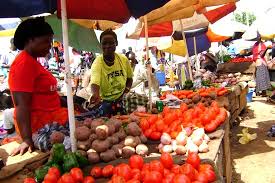Asaba, Aug. 9, 2023: The Federal Government is committed to increasing access to food for its populace through its bio-economy policy, an official said on Tuesday in Asaba.
Engr. Nebolisa Anoka, the Permanent Secretary, Federal Ministry of Finance, Budget and National Planning, disclosed this at a two-day South-South sensitisation workshop on Bio-economy, Employment and Inclusive Growth.
Anoka, who was represented by Mrs Elizabeth Egharevba, the ministry’s Director of Economic Growth, said government was desirous of growing the national economy through the strategic implementation of the bio-ethanol project.
The workshop has the theme “Knowledge Transfer: Casava and Bio-ethanol Value Chain” and it centred on inclusive growth using the cassava bio-ethanol value development programme pilot.
Anoka said one of government’s aspirations was to bring about a higher GDP growth and also significantly reduce unemployment by creating meaningful opportunities for the youth.
“The bio-economy policy aims at promoting sustainable economic growth and development by creating a bio-based economy that will contribute to job creation, poverty reduction and increase access to food,” he said.
The Permanent Secretary explained that the bio-economy policy, which was a ministerial deliverable, was captured in the National Development Plan (NDP) 2021 to 2025.
According to him, the framework for the project would employ a Triple-Helix Knowledge Transfer Partnership in its implementation plan.
He said the project partnership arrangement includes the academia, research and development institutes, farmers, government’s
ministries/departments/agencies (MDAs), the private sector, development partners and the civil society.
“It is pertinent to look at the bio-economy response and how it can contribute to the decceleration of the rising food insecurity.
“The country at this moment needs an approach that will increase food production, youth employment and increase growth through the provision of industrial feedstock and exportable products.”
In a welcome remark, Gov. Sheriff Oborevwori of Delta commended the Federal Government for organising the sensitisation workshop.
Oborevwori, represented by Dr. Ben Agama, the Permanent Secretary, State Ministry of Agriculture and Natural Resources, described the workshop as very timely.
He said the sensitisation workshop was a positive step towards creating public awareness for the citizenry to appreciate the huge benefit of the bio-economy project of the Federal Government.
“Let me sincerely commend the Federal Government for this workshop because it is very timely and a positive step in the right direction.
“Here in Delta, we have keyed into the bio-economy project long before now with various programmes of the Faculty of Agriculture at the Dennis Osadebey University in Asaba, which have been duly accredited by the National Universities Commission (NUC),” the governor said.
He enjoined the participants to make good use of the knowledge and new ideas the workshop provides, and wished them fruitful deliberations.
The workshop was attended by members of the academia drawn from tertiary institutions across the South-South, farmers’ unions, members of the civil society and technical partners.




